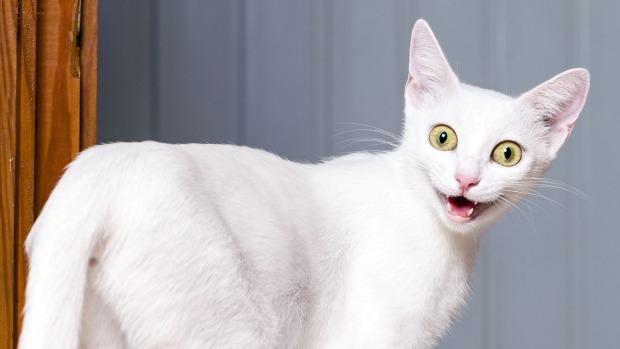It has been a bit of a soap opera, but today Wellington City Council agreed to include compulsory microchipping for cats as part of their animal bylaw. This is a massive step forward for both the welfare of cats and our native wildlife.
Decisions
After months of ‘will they won’t they’, today the Council confirmed compulsory microchipping as part of their animal bylaw. The recommendation for compulsory microchipping has appeared, disappeared and reappeared throughout the process. Following 89% support by public submissions and a legal opinion that the Council has the power to enact this change, an amendment supporting compulsory microchipping was proposed by Simon Woolf and Mayor Celia Wade-Brown, and passed by the Council. Only Jo Coughlan, Nicola Young and Helene Ritchie voted against it.
The Council also decided to stop feeding stray and feral cats on public property, which should bring an end to stray cat colonies in our reserves. However, they decided not to require desexing and limiting cat numbers to three (or fewer in sensitive wildlife areas), despite 77% support for the cat limit in submissions.
The new rules will have an 18 month transition period and there will be some funding in next year’s budget to provide help for people that can’t afford to microchip and desex their cats.
The changes have to be approved at a full Council meeting on August 17th. Cat curfews, limits on cat numbers and wildlife sensitive areas will be looked at further in the Animal Policy, which is slated for next year.
Why microchips are so important
Microchips are good for cats and good for wildlife. Cats found with microchips can be safely returned to their owners – already 50% of Wellington cats are microchipped and 2,000 are returned to their owners every year.
Cats found in reserves where our native species are breeding without a microchip can be rehomed or, if they are wild, humanely euthanised. Given the millions of dollars and thousands of volunteer hours that have gone into returning wildlife to Wellington City, there is simply no place for stray and feral cats in parks and reserves where threatened native species are breeding and living.
The arguments against
One submitter Kent Duston has already threatened the Council with legal action. He argued that under the law City Councils have no role to protect wildlife, and made legal threats of a judicial review if the Council tried to enact any form of mandatory identification. He argued that the Council has not demonstrated a problem, nor demonstrated why microchipping is the solution.
What Duston overlooked is that without microchipping, any management of stray and feral cats not only becomes far more expensive, but it also puts owned cats at risk. This makes clear Duston’s hidden agenda – he doesn’t want cats managed at all. His arguments amount to a desire to preserving the right of cats to wander unimpeded. It would also mean that there was no way to manage stray and feral cats in reserves where native birds are breeding. Judging by submissions and surveys this is a situation that the majority of wildlife and cat loving Wellingtonians simply won’t stand for.
Ultimately if Duston’s threatened legal challenge is successful and Councils can’t act in this area, then it is clear that central government legislation will be required before we have any hope of managing cats. Regardless the angst surrounding this decision should encourage central government to clarify the legal situation and give Local Authorities a toolkit to manage cats. Until that happens Predator Free New Zealand by 2050 remains a pipedream. Which makes you wonder how mayoral candidate Jo Coughlan plans to achieve her vision of a Predator Free Wellington when she opposes the most sensible first step toward cat management.

